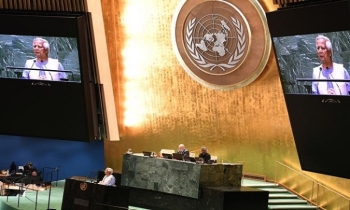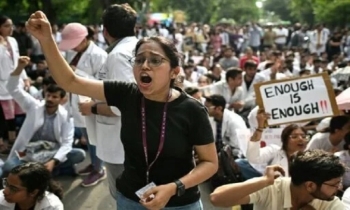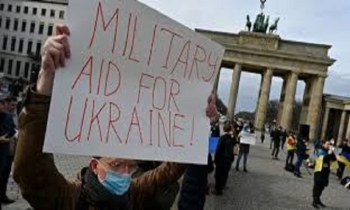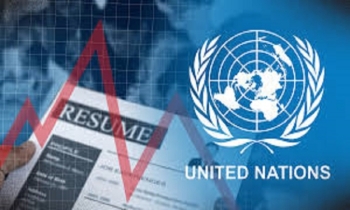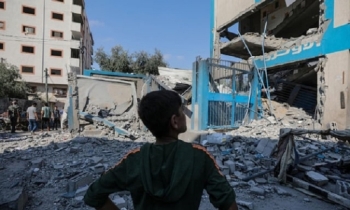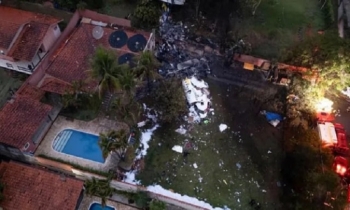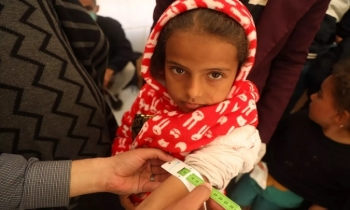Bangladesh in world media this week
BI Report || BusinessInsider

Bangladesh flag. Photo: Freepik
Being a Friday, the beginning of 2021 also marks the end of another week. Bangladesh has been mentioned in multiple news articles published in internationally-recognised media outlets in the last week of the immediate past year.
Here are our five picks for this week (December 26-January 1) —
Bangladesh gets offers in tender to buy 50,000 tonnes rice, cuts duty on import
On December 27, Reuters reported that Bangladesh will lower the duty on rice imports from 62.5 percent to 25 percent in an effort to reduce prices.
Mentioning Bangladesh as the world’s third-biggest rice producer country, the article further mentioned that Bangladesh had to become a big importer of the grain lately due to depleted stocks and record-high local prices after repeated floods.
A day later, on December 28, Reuters filed another report mentioning that Bangladesh got multiple offers to buy 50,000 tonnes of rice.
According to the report, the lowest offer of $405.60 (worth Tk 34,503) per tonne of parboiled rice was made by India’s ETC Agro. The price offered included all freight, insurance and other expenses.
The offer was submitted to the cabinet purchase committee for approval.
However, the purchasing committee, on December 30, approved the purchase of 50,000 tonnes of parboiled non-Basmati rice from MS PK Agri link Ltd, a company based in India’s West Bengal.
The company will supply the rice worth Tk168 crore. Each kilogram of rice is expected to cost Tk33.07.
A Bangladeshi family with no fingerprints!
BBC, on December 26, covered an extremely rare genetic mutation that affects the daily lives of a Bangladeshi family.
This condition caused by the mutation is medically known as Adermatoglyphia. It is a rare condition that refers to the lack of ridges on the skin of the fingers, toes, palms of the hand and soles of the feet.
Because of the lack of these ridges, the affected patients end up with no fingerprints at all, which is mostly used as a mean of biometric identification in Bangladesh.
In Rajshahi, Apu Sarker, 22, and all other men in his family suffer from this condition. The BBC report primarily focused on their lives and the issues they are facing due to the lack of fingerprints.
The story mentions that Apu’s father ended up getting a National ID card with “NO FINGERPRINT” stamped on it back in 2008 because he didn’t have any fingerprint and the government employees really didn’t know how to issue a card without that.
Apu, on the other hand, has been fined twice because he couldn’t get a driving license for his motorbike without a fingerprint.
“I paid the fee, passed the exam, but they did not issue a license because I couldn’t provide a fingerprint,” Apu told BBC in an interview.
When fingerprints were mandatory for buying SIM cards in 2016, none of the male family members could purchase one. They all are currently using SIM cards issued in Apu’s mother’s name.
West Indies player Holder, Pollard opt-out of Bangladesh tour on COVID concerns
The West Indies test captain Jason Holder and skipper Kieron Pollard are among the 10 players who have chosen not to travel to Bangladesh for the upcoming tour due to concerns over coronavirus.
Reuters published a report on this quoting Cricket West Indies (CWI) on December 30.
The other players who opted out of the series are — Darren Bravo, Shamarh Brooks, Roston Chase, Sheldon Cottrell, Evin Lewis, Shai Hope, Shimron Hetmyer and Nicholas Pooran.
The West Indies cricket team is scheduled to arrive in Dhaka on January 10. The ODI series will begin from January 10, followed by the test series from February 3.
Bangladesh moves second batch of Rohingyas to Bhashanchar
Bangladesh moving the second group of Rohingyas to Bhashanchar caught the attention of the international media.
The Indian Express, in an article published on December 29 wrote about the relocation while mentioning that several human rights group including Amnesty International expressed concern regarding the safety in the cyclone-prone remote island.
Reuters also published a photo story on the topic on December 30.
India lifts ban on onion exports
Bangladesh was mentioned in the news of India lifting banned on onion exports.
Published on December 28 by Reuters, the article said that the move from India came as prices of onion fell sharply in the Indian market.
The article mentioned Bangladesh as one of the countries that rely on Indian shipments of onions.

